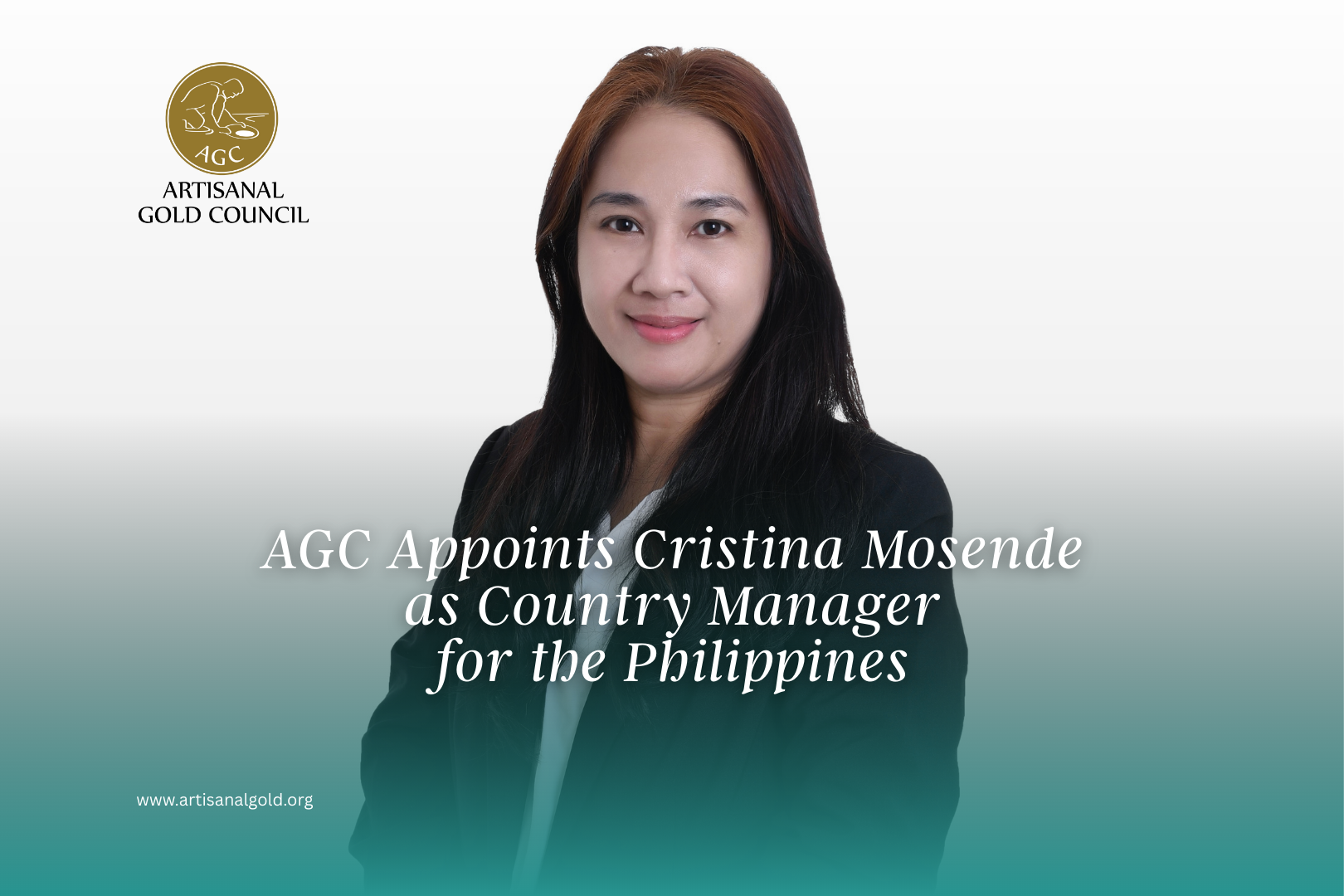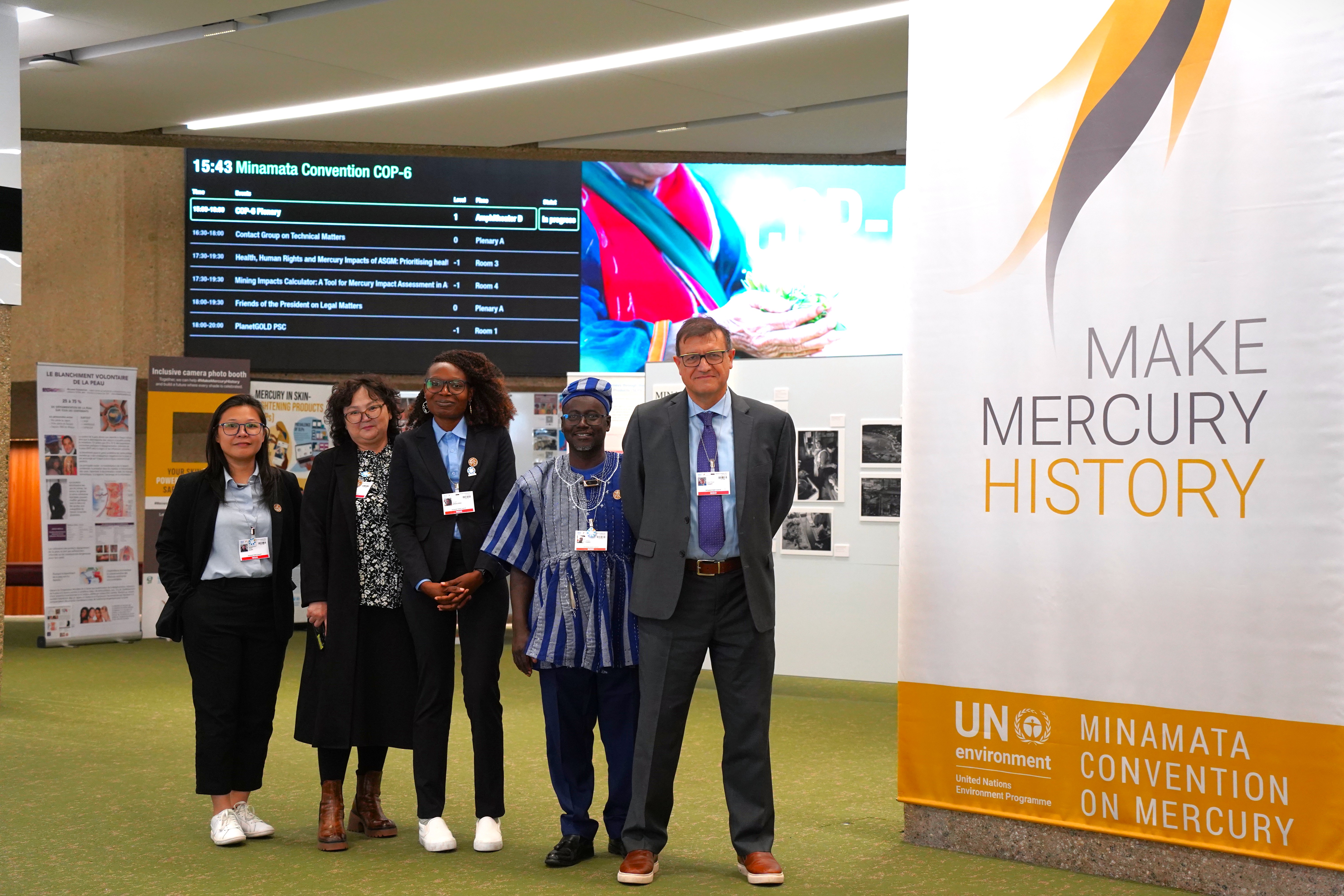Behind the Scenes in Paris: Building Responsible Mineral Supply Chains from the Ground Up
Insights from AGC’s visit to Paris on building responsible mineral supply chains and supporting ASM communities.
.png)
Last week, I had the opportunity to represent the Artisanal Gold Council (AGC) during a full day of discussions in Paris—both in and around the OECD—on the future of responsible mineral supply chains. These gatherings brought together governments, NGOs, industry stakeholders, and civil society, all united by a common question: how do we make the gold sector more just, inclusive, and sustainable?
For me, the day was an important reminder that while policy frameworks and technical tools are necessary, the real work of building a responsible gold sector must start with the lived experiences of miners and communities on the ground.
We began the morning at a seminar held just outside the OECD venue. While the event wasn't part of the formal agenda, it provided valuable framing around justice in mineral supply chains—particularly how different actors define “responsibility” and who is being asked to carry it. These themes resonate strongly in my home country of Burkina Faso, where the artisanal and small-scale gold mining (ASGM) sector continues to grow despite serious legal, social, and security challenges.
Later in the morning, I joined my colleague at the OECD itself. While some sessions lacked the depth we had hoped for, it was a pleasure to reconnect with colleagues from the planetGOLD network, including Suzan from NRDC and Lynn from planetGOLD Uganda. These relationships are essential, not just for coordination, but for solidarity among those working to bring real change to the sector.
I had the chance to speak during the morning session and shared some reflections on what “responsible mining” means in practice. In West Africa—and particularly in Burkina Faso—we speak of responsible mining when gold production, from ore extraction to commercialization, is conducted in a way that protects the health and safety of workers, respects basic human rights, and minimizes environmental harm. But achieving this is far from easy.
The biggest challenges we face include legal frameworks that are not adapted to ASM realities, cultural tensions at mine sites involving local and migrant workers, and the increasing presence of non-state armed groups that bring instability and insecurity. On top of that, many of the tools being promoted to formalize the sector—such as due diligence protocols and traceability standards—often overlook local contexts. These tools are important, but they must be flexible enough to work where the risks and realities are constantly changing.
AGC is working on this directly in Burkina Faso. We’re supporting the formalization of sites and implementing gold traceability systems in partnership with SONASP, our national gold buying office. This work is slow and complex, but essential if we want to bring more transparency and accountability to the ASGM sector.
During my remarks, I also pushed back on the idea that state “weakness” is the only reason responsible mining hasn’t advanced. Certainly, many governments lack the capacity or resources to enforce standards. But they are not the only actors who must be accountable. The mining industry, particularly large companies, often show little interest in supporting local gold markets or building capacity in ASGM communities. Meanwhile, consumer markets—especially in the Global North—frequently apply pricing pressures and demand quick fixes without understanding the real conditions in producing countries.
If we want responsible mineral supply chains, then responsibility must be shared across the entire chain—from miners and governments to refiners, brands, and consumers.
Looking ahead, I see three key challenges that research and international organizations can help us address. First, we need reforms to the legal frameworks that govern ASM—laws that are practical, inclusive, and enforceable. Second, we need to adapt due diligence tools like the OECD Guide and the CRAFT Code to better reflect the diverse cultural and security contexts in which miners operate. Third, we must build stronger connections between local realities and global policies—so that what happens in Paris, London, or New York is grounded in what’s happening in Ouagadougou or Bobo-Dioulasso.
Responsible mining cannot be built on paper alone. It has to be built in dialogue with those who live it every day.
As we continue this work at AGC, I remain hopeful. There is momentum. There is interest. But we must not lose sight of who this is really for: the miners, the families, and the communities whose livelihoods and futures depend on getting this right.
I look forward to continuing this conversation—and to working together toward a gold sector that is not only profitable, but fair, inclusive, and just.




.png)
